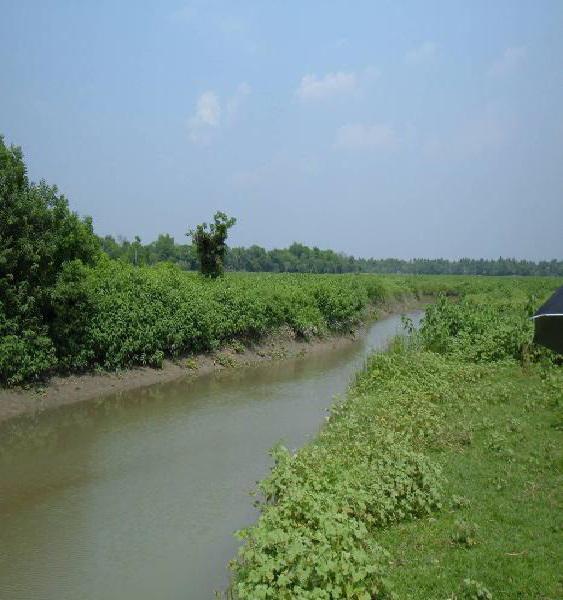Parvin Sultana
The project will pilot the Integrated Floodplain Management (IFM) approach to sustainable floodplain use and wetland / fishery conservation in a degraded wetland in southwest Bangladesh – Korgar Beel, Narail District. Integrated Floodplain Management aims to minimize conflicts of interest and build on scope for all local people to benefit from maximizing their returns from dry season water, adopting integrated pest management, and limiting fishing to sustainable levels.

About half of Bangladesh comprises floodplains and wetlands. They provide food and livelihood security (crops, fish, aquatic plants, etc.) for millions of rural people. However, these vast wetlands have shrunk with drainage for rice cultivation, infrastructure development, high population pressure, and lack of public awareness about wetland values. This trend threatens wetland biodiversity (for example 54 out of 260 freshwater fish species are nationally threatened with extinction), and the livelihoods of the poor who depend on that biodiversity.
Dry season water management is the key to sustainable floodplain resources in Bangladesh. People think fish is a free good and anyone can harvest fish any anytime. Landlords control water movement through sluice gates and prevent fish from migrating. Farmers intensify rice monoculture depending on agro-chemicals. The residual surface water that aquatic life survives in for the 6-month dry season is drained out by landowners to catch all of the fishes and few survive to populate the floodwaters in the wet season. Lack of coordination between different stakeholders' activities and between different government institutions for development works have also decreased resource sustainability.
Intensive human use of floodplains is inevitable, but several small DFID funded research projects has shown that if communities work together and adopt simple recommendations they can profitably balance agriculture and fisheries, the two main components of livelihoods in these systems, by adopting crops with lower irrigation demands and conserving dry season water in aquatic sanctuaries and limiting fishing effort. This was piloted where institutions were built up over several years. If remaining wetland fish, plants and animals are to be conserved and sustainably used, these methods need to be piloted in an adaptive and participatory way through a low cost approach. On this basis recommendations and methods can be promoted widely.
The project will pilot the Integrated Floodplain Management (IFM) approach to sustainable floodplain use and wetland / fishery conservation in a degraded wetland in southwest Bangladesh – Korgar Beel, Narail District. Integrated Floodplain Management aims to minimize conflicts of interest and build on scope for all local people to benefit from maximizing their returns from dry season water, adopting integrated pest management, and limiting fishing to sustainable levels. This also restores fisheries and aquatic life because it is in the interests of the local community. This is expected to sustain by building social capital in the community through participatory planning, capacity and awareness building, networking and experience sharing with similar communities that already have adopted elements of the approach. Individuals and nature can profit when coordinated actions are taken by the community to adopt alternative crops and fish sanctuaries.
The key activities will include: a baseline survey of households depending on the resources, resource mapping, development of a participatory action plan for sustainable use of wetland resources through community participation, an awareness campaign regarding this plan and associated local conservation rules, formation of a local committee for management of wetland resources, implementation of conservation practices (sanctuary, tree plantation, etc.), exposure visits to increase the knowledge base of the local community, and finally knowledge sharing, learning and assessment workshops between stakeholders and local government institutions.
This project is expected to demonstrate the low cost development of an integrated community initiative to conserve floodplain wetland resources, particularly fish and aquatic life. The principle investigator has helped develop participatory planning methods to be used in the project, the NGO partner is experienced working in this area in forming community institutions, and both partners have undertaken research in IFM including conservation interventions such as fish sanctuaries, and adoption of crops with lower dry season water demand which will be tested. The project is expected to benefit fishers, farmers and the poor in the pilot area. Findings from the participatory monitoring and impact assessment will be disseminated to inform NGOs and government on whether this approach conserves and restores wetlands and improves the lives of the poor.